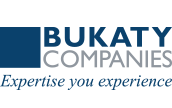The Equal Employment Opportunity Commission (EEOC) is the guiding agency responsible for enforcing federal laws that prohibit discrimination based on an employee or job applicant’s race, color, religion, sex, national origin, age, disability, or genetic information. Employers should follow EEOC guidance to avoid discriminatory practices. While the entity's guidance is not binding law, it indicates how the EEOC interprets and enforces federal legislation like Title VII, the Americans with Disabilities Act (ADA) and Age Discrimination in Employment Act.
Nearly 60 years after the Civil Rights Act of 1964, which laid the groundwork for equal opportunity and harassment laws, the EEOC recently issued updated Enforcement Guidance on Harassment in the Workplace. The last update was in 1999. While the mission of the EEOC remains the same, social changes and modern-day laws have evolved, underscoring the importance for updated EEOC guidance. Additions include
- harassment prevention measures in online and virtual work settings,
- detailed standard harassment investigation protocols for employers,
- clarification on protected classes like pregnancy, gender identity and sexual orientation, and
- 70+ additional examples of unlawful harassment.
Employers should review their current harassment prevention policies and training processes to ensure they align with EEOC directives. The risk of harassment claims and potentially discriminatory employment practices can be mitigated with proper management training, employee education and prevention policies. Harassment prevention is a team effort. Ensure managers know how to identify and address harassment scenarios. HR personnel should be cognizant of federal and state job posting requirements during the recruiting and hiring cycle. Employee handbooks should have clear verbiage stating policies and processes, and how to register a complaint or concern.
HR managers are tasked with remaining educated on the ever-expanding list of requirements that come with operating a business. Join us at 9 a.m. on Wednesday, August 21, as Rachel Gast, HR Consulting Director, outlines the most prominent EEOC updates and the policies employers should implement.

